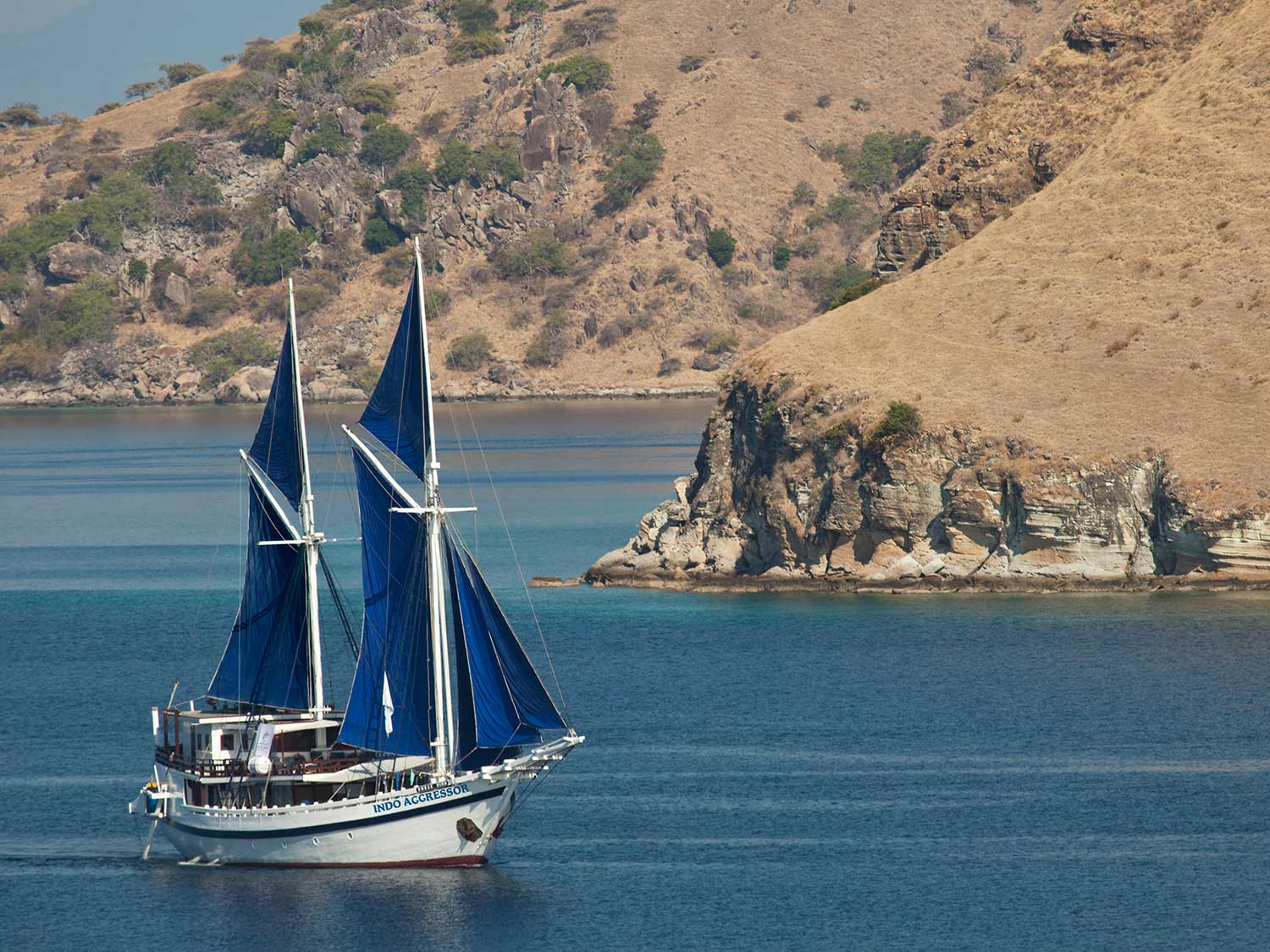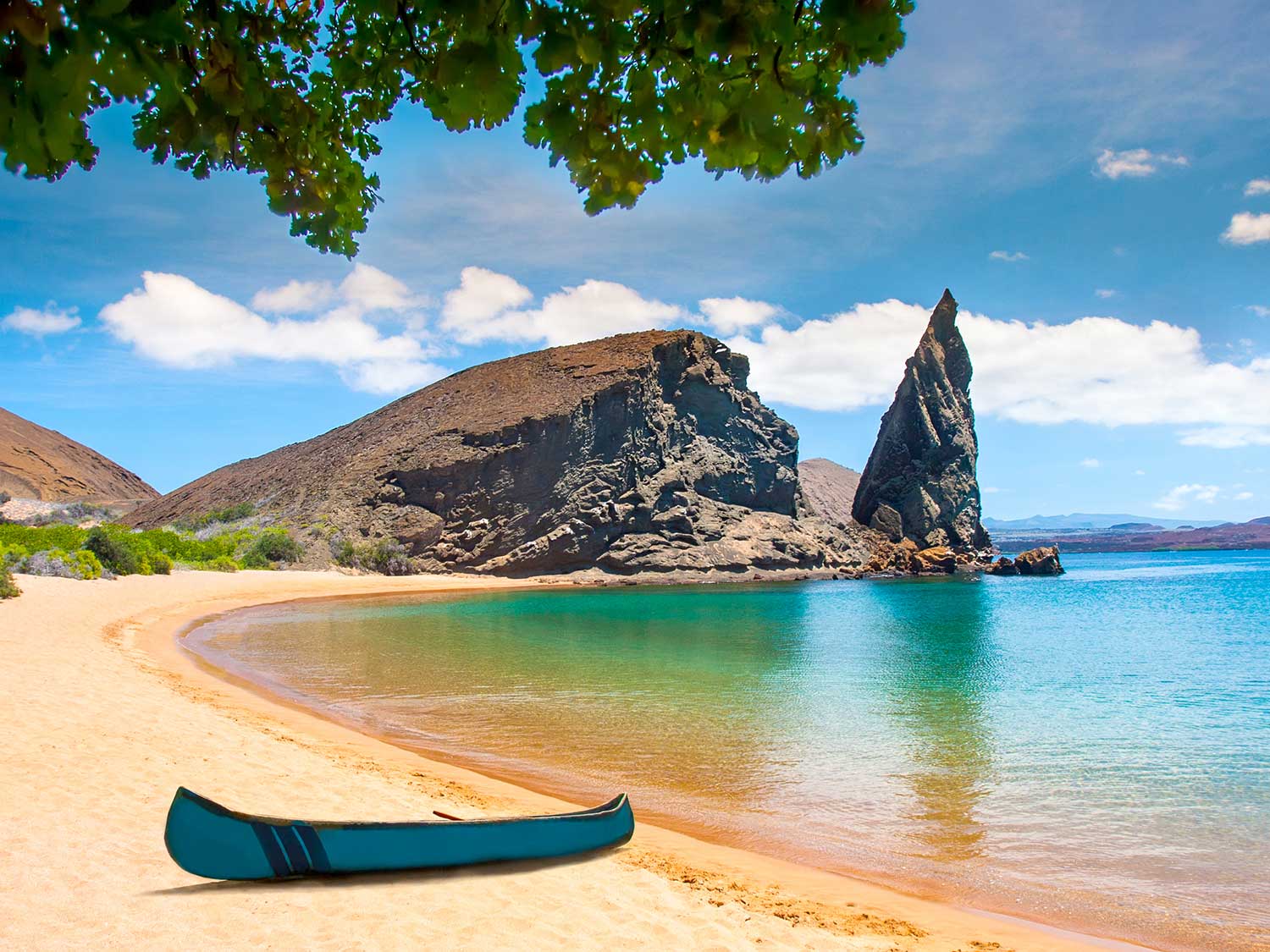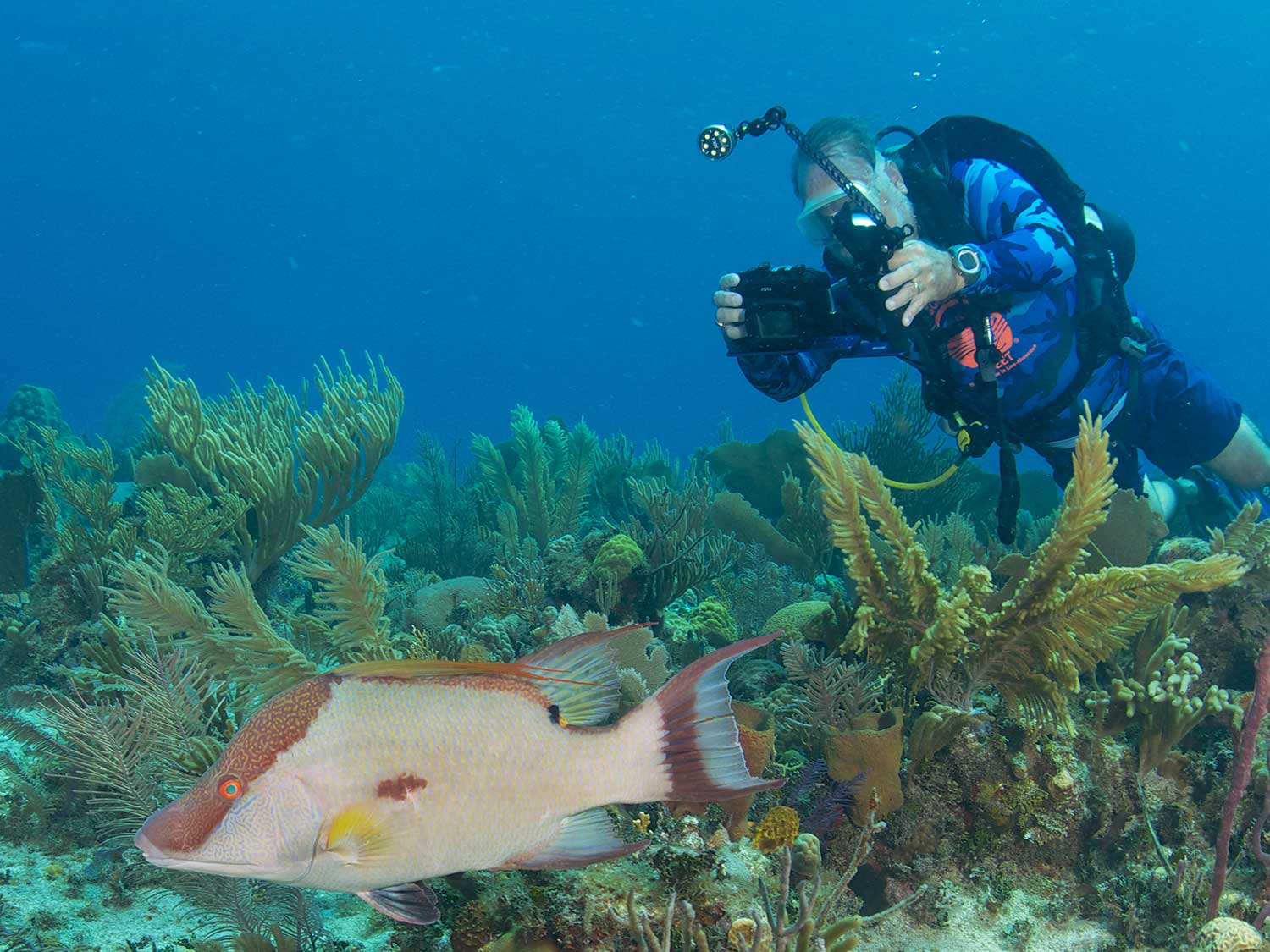The Little Things That Keep Divers Coming Back To Aggressor
When it comes to exploring some of the best reefs and underwater landmarks in the world, it’s never just a young person’s game.
On a trip to Aruba last year, I spent an afternoon aboard a tour outfit's 70-foot catamaran that takes travelers to three of the island's most popular snorkeling spots. A casual snorkeler, I'd been eager for some time to visit the Antilla shipwreck, but somewhere in the back of my mind I was still a little wary of strapping on a mask and flippers given my decades-long, childhood fear of the deep.
It's silly to talk about now, but anytime I prepare to leap from a boat, I think back to the time my grandfather, a grizzled WW2 veteran, tossed me from his dock into a Miami canal because my mom told him I didn't know how to swim. The fright I experienced in that moment stuck with me through my teen years and kept me on the sand when all my friends were learning to surf or experimenting with other watersports.
Sitting on that catamaran and waiting for everyone else to slip into the warm waters of Malmok Bay, I chuckled as some first timers collectively yelped and screamed as they descended from the ladder. I spent more time bringing various marine life and parts of the ship to their attention than I did swimming around the area, but I didn't mind, because their nervous excitement helped quash my wariness once and for all, and their excitement also inspired me to make up for lost time with underwater exploration.
One of my greatest travel goals for 2020 that will be held over for 2021 was not only to become a certified diver, but to accomplish that so I could enjoy my first Aggressor experience. When I met Aggressor CEO Wayne Brown at the DEMA show in Orlando at the beginning of 2020, he emphasized the sense of community his company's voyages create and inspire among guests, and such a thing is crucial. After all, if you're getting in the water with someone, friend or stranger, you need to know he has your back and vice versa.
But with the travel industry coming to a screeching halt this year, I know I'm not the only person whose goals have been delayed. So, I asked two longtime Aggressor divers to tell me what it is about this company that makes them return year after year. There are a lot of factors, and while both divers have plenty in common, there's one distinct characteristic that they share, and it might be the thing that makes Aggressor so special.
Above and Beyond to Go Below
Debby Graves is a "semi-retired" organist who lives in South Carolina, but her Aggressor adventures began nearly two decades ago when she lived in Burbank, California. It was in March of 2002, she tells me, when someone urged her to give diving a try, as it had been something on her "bucket list for a long time." Soon enough, she was diving around the Catalina Islands and off the coast of Laguna Beach, and she became a member of the Burbank Dive Club.
Not long after, the North Hollywood Dive Club offered a Galapagos trip with the Aggressor fleet, and that was another bucket list trip for this eager explorer, and as fate would have it, that club had a few spaces left. "I was hooked," she recalls of that dream journey.
Frank Spears was certified in 1992, after learning how to dive with his son, who was 14 at the time. He vividly recalls his first dive in St. Thomas, as well as the good old days of flying to Cozumel and "shlepping tanks" from the dive shops. Like Graves, his first voyage with Aggressor was also a Galapagos cruise, of which he remembers a decade later: "Boy oh boy, was that one heck of a great trip... you couldn't start off any better than the Galapagos."
While their stories are similar in many ways, it's what Aggressor does for them now, or more specifically on recent trips, that makes these liveaboard adventures, as Spears puts it, "the only way to do it." After several back surgeries, it is difficult for Spears to shlep tanks as much, but Aggressor's crew is more than willing to handle the hard part for him.
"I didn't realize how accommodating they would be," he admits. "The fantastic thing about Aggressor is, if you have a back issue... no problem. All you do is tell them and they will accommodate you like there's no tomorrow. They'll pick the tanks up and put them on your back. When you want to get out of the water, they'll take the tank off in the water and put it up for you, and you just walk up the ladder."
Graves had surgery on her right hip two years ago, and she recently had her left hip replaced. On a trip last year, she wondered how she was going to make it through the entire adventure, as she was "hobbling around" because of the left hip issues. Just like with Spears, the crew came to her and offered to do the heavy lifting.
"About the third or fourth day—you know, you put all that heavy equipment on—the people on the boat kept saying, 'We can take all this stuff down to the lower deck and you don't have to go down the stairs with it on,' and I said, no no no, as long as I can do this I'm doing it this way," she offers with a chuckle. "But maybe I should have let them carry it down, because the rest of the time I was putting ice on my hip."
The exceptional generosity isn't limited to divers with physical limitations, however. "When I was on the Red Sea, we couldn't even put on our own dive suits by ourselves," she tells me before listing the myriad ways her boat's staff went above and beyond, from the food to dispensing knowledge of each area for the sake of reassurance. "They wouldn't take you to these places if they didn't feel like it was safe. Safety is their priority."
Losing a Year Means Looking Forward
Another thing these divers have in common is a desire to see it all. Spears has taken 15 trips with Aggressor, while Graves trails him by one. They both started with the Galapagos Islands, and they've continued on their separate but similar journeys—they're friends on Facebook, too—checking off dream destination after dream destination. Picking a favorite is difficult, and each location offers something different than the last.
"Indonesia just knocked my socks off," Spears says. "We dove in September of 2019, and that was just breathtaking. Ten days of incredible diving. At one point, we got to a dive site and had 20 manta rays above us. You're strapped onto the reef and you look up and there are 20 mantas above you feeding—you can't duplicate that."
Spears has never repeated a destination because, he tells me, he made a decision five years ago, when he turned 65, to visit his dream spots while he could afford to do so, both financially and timewise. He's visited the Caribbean plenty but says that's "too easy," so he's found thrills and satisfaction in some of the most incredible places on Earth. He knocked Wakatobi off his list last year—"The best place to dive in the world"—and he's also been to Palau (the only place he'd consider returning to), Oman and the Maldives, his most recent trip in February, so at least he has one trip under his belt in 2020.
Still, this year's unprecedented complications ended any hopes of crossing Aggressor's newest destination off his list. "I want to see the Philippines very badly," Graves insists, and had things gone to plan, he could have starting back in May. That's when the Philippines Aggressor was set to launch, providing as many as 20 dives in Tubbataha Reefs National Park, among other locations. Alas, that voyage is delayed.
In addition to Indonesia and the Philippines, Graves was set to accomplish one of her biggest goals this year: swimming with the crocodiles in Cuba. She'd also love to dive near the Komodo Islands, so it's clear the word fear won't be found in this diver's dictionary.
Age Ain’t Nothing but a Number
In addition to exploring everything beneath the surface of some truly fascinating places, Graves has also done her share of land exploration. Had she been born centuries ago, we might be reading about her in history books. She's visited every state in the U.S., all seven continents and seen the Seven Wonders of the World. And when she finally joined Aggressor's exclusive "Seven Seas Club," Brown spilled the cake on her head as part of the "initiation."
Most of all, Graves likes to spend time on land in the places she visits, like when she devoted four days to Oman's capital, Muscat, before heading out on the boat. She doesn't want to just fly in and head out to sea. "I want to get to know the people, that's always been my style."
Recently, though, she says the people have been openly curious about her age, certainly a taboo concept for those of us with good manners. Naturally, that curiosity struck her as strange, but she found enjoyment in their disbelief.
"Most of the time when I go on these dive boats now, I may not be the oldest but I'm getting close to it. When I was in Oman last year, the whole trip there were so many people asking me how old I am, and I don't look very old," she recalls. "Finally, when someone on the boat asked me how old I am, I said, 'Why does everyone want to know how old I am?' and she said, 'I just want to know that when I'm your age I can still be diving.' These people are looking up to me, not that I need to be looked up to, but it's a nice feeling."
Graves admits that if diving has given her anything, it is more self-assurance. "I always thought I was second best, and it's taught me better self-esteem," she says.
For Spears, the gift has been patience. He dives with people with incredibly expensive cameras, but while they're trying to capture the perfect photo, he simply lives in the moment. "You're underwater for maybe 45 minutes, maybe an hour if you're in a good spot," he explains. "Diving has taught me to be very patient and wait for something to happen. If you're in a hurry, you're going to miss it.
"You forget the entire world," he adds. "When you get underwater, the world just comes to a screeching halt. I'm always amazed at what's going to turn up."



